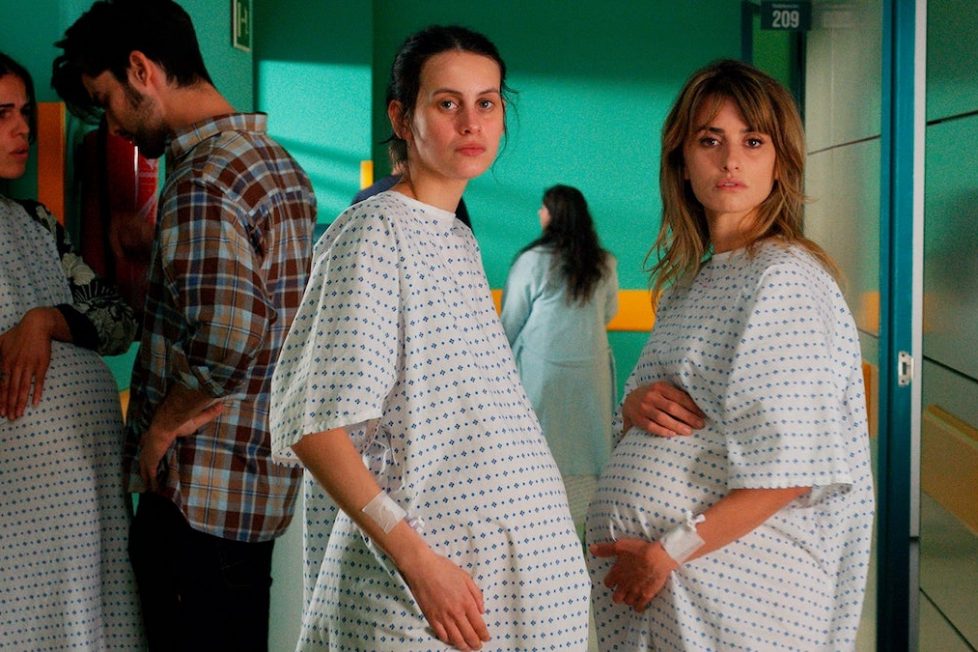PARALLEL MOTHERS (2021)
The story of two mothers who give birth the same day.

The story of two mothers who give birth the same day.


Pedro Almodóvar delivers a slice of classy melodrama and Penelope Cruz a career-best performance, in this seamless blend of a family drama about two first-time mothers and historical yarn about Spain’s dark past. Parallel Mothers, which opened the 78th Venice Film Festival, tells the story of two single mothers who give birth to baby daughters at the same moment.
Janis (Cruz) is a confident professional photographer approaching 40, while Ana (Milena Smit) is a scared young teenager. Both their pregnancies are accidental and neither father’s on the scene, but, somehow, the two women form a relationship and exchange phone numbers.
Through flashbacks, we meet Arturo (Israel Elejalde), a forensic anthropologist with whom Janis is having an affair. Although they met on a photoshoot, she takes an interest in his work facilitating the excavation of the unmarked grave of her great-grandfather, who was one of 100,000 people whose bodies were never recovered after the Spanish Civil War and the brutal reign of Franco. Woven into a film ostensibly about motherhood is the story about a state-sanctioned murder that tore Janis’s family apart.
Janis is a strong and independent person who, despite the burden of motherhood, meets every challenge with ease. She multitasks alongside a flaky au pair, goes back to work but never suppresses the guilt she’s somehow not doing the right thing for her daughter—making her the perfect embodiment of a modern, middle-class working mum.
Ana’s circumstances are different. A teen from a broken home with a narcissistic mother who’s often away working as an actress, she became pregnant after being coerced into sex by several young men. Her transformation from a young girl to a Gen Z adult is more visible. Unlike Janis, who slots the little girl into her life, Ana transforms herself. She stops being scared, despite being mostly left to her own devices by her family, and gains focus as she grows into motherhood.
Ana’s mother Teresa (Aitana Sánchez-Gijón) adds another layer to the drama. Teresa’s the type of character who could’ve been the protagonist of an earlier Almodóvar picture. Here, she’s a privileged narcissist who can’t acknowledge the harsh realities of motherhood.
There are hints that something is about to unfold, but it may not be what you expect. Arturo doesn’t believe the little girl is his daughter as her skin is too dark; Ana is unsure of the true father of her daughter. Janis doesn’t trust her au pair; Ana finds independence working as a waitress. To give away any other plot points would do Almodóvar’s melodramatic imagination a disservice.
Cruz and Smit give incredibly natural performances that stop the film from spiralling into histrionics. Cruz is sexy and confident as Janis, maintaining an emotional connection with audiences, while Smit is more understated, and her subdued performance a little outshone by Cruz’ star power. Their grounded performance only exaggerated by the in-camera lighting techniques by cinematographer José Luis Alcaine and the moving score by Alberto Iglesias. Almodóvar’s always been a master at balancing melodrama and soul, and his occasionally soapy screenplay never becomes too much.
Parallel Mothers has intertwining strands of a family and political drama. At times the historical framework weighs down the emotive script. Almodóvar’s interested in how the choices these women make dictate their past life and whether it mimics the painful ones followed by the ancestors of their near past. It’s only after one watches the film and pieces it all together that the threads start making sense.
Although the film’s weighed down with talks of ancestors and missing family links, Parallel Mothers excels at capturing life in all its forms. It’s sexy and silly, tragic and heart-breaking, but never dwells on just one, although the emotional weight tops and tails the narrative and results in the middle meandering a little bit.
The third act does a decent job tying together the overarching themes of sacrifice and motherhood, but the transition between the present-day drama and the conversation about the Spanish Civil War is a little messy. The film’s historical themes sometimes feel like a school lesson shoved into the middle of an engaging family drama.
Decades later, families are still feeling echoes of past trauma. Approaching this dark cloud over Spain’s history, via the more relatable story of motherhood and female friendship, makes the pain more accessible. Parallel Mothers never sugar-coats motherhood or womanhood, even with Janis being so capable and strong, as the film makes it clear that having a child is an immense burden. The film shows how women adapt and change their lives as they have children. Parallel Mothers is in many ways a love letter to the strength of women and the power of motherhood.
SPAIN | 2021 | 120 MINUTES | 1.85:1 | COLOUR | SPANISH
writer & director: Pedro Almodóvar.
starring: Penélope Cruz, Milena Smit, Israel Elejalde, Aitana Sánchez-Gijón, Rossy de Palma & Julietta Serrano.
